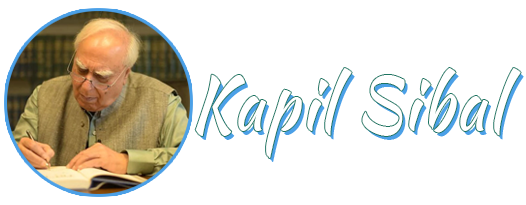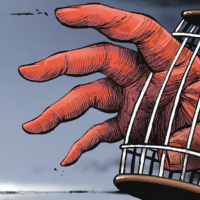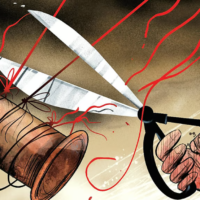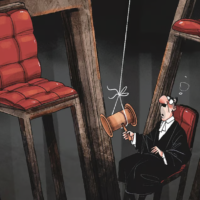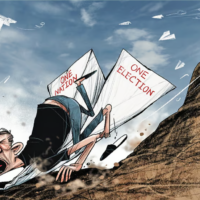This Republic Day, when we glorify our brave citizens who have upheld our republic’s moral values, we must also realise there are many more battles to be fought and many more to be won
As we celebrate the completion of 75 years of our republic, we, at the outset, pay homage to those who brought us freedom. We pay tribute to the sacrifices made by millions who resolved to fight the might of the Empire with the weapon of non-violence. Used for the first time in any freedom struggle, this weapon signified a moral authority more powerful than the threats, violence, and criminal dehumanising acts our people were subjected to.
After years of struggle under the leadership of Mahatma Gandhi, the unwavering commitment of leading personalities who jettisoned their personal interests to join the struggle, and the sacrifices and emotive responses of millions of ordinary people, we won the long-fought battle for freedom. Though etched in our memory, these moments of history reverberate even today. Our republic owes its very existence to this struggle.
All individuals, all societies, by the nature of their existence, are aspirational. At the same time, all governments of whatever hue think that they know best. There always exists a gap between aspirations and reality. In democratic societies, governments are brought to account after every few years. Unmet aspirations call for change, but governments seek longevity. If longevity in democratic societies is achieved by trampling freedoms, that becomes a societal concern. The seeds of the conflict lie there.
It is said that there is no present. There is only the past. It is the past through which we learn to commit once again to fight for the cause of freedom, the nature and the quality of which have changed with time. New challenges confront our republic.
We must not forget that freedoms won must never be lost; freedoms won must not be taken for granted, and freedoms won must be cherished and protected. This is the lesson we learn from history. The nature of power, in whatever form and wherever power exists, both at the level of the state and society, can infringe on our freedoms. We stand today not to denigrate or criticise but to reflect on times in the past when we stood up to the emasculation of our rights.
In that struggle, the role of the court and the legal fraternity will always be remembered. We cannot protect our cherished freedoms without a strong bar and an independent, fearless judiciary.
Lately, the leaders of the bar and the legal fraternity have been silent spectators to laws and executive acts that attempt to alter the balance between state accountability and our constitutional freedoms. Voices sought to be silenced, the rule of law diminished by arbitrary executive actions, and investigating agencies misused to instil fear are all matters that are an affront to the moral underpinnings of constitutional functioning. Issues like hate speech, increasing communal divisions, and the targeting of civil society organisations have further strained our democratic values and constitutional safeguards.
The state is perceived to have captured institutions constitutionally charged with the responsibility of checking executive excesses. Free and fair elections must be seen to be held. The use of the state apparatus to interfere in the electoral process is another aberration that is visible. The rampant use of money power in elections is evident. A majoritarian culture seeks to diminish entrenched constitutional freedoms. Corporate giants are recipients of government patronage, and they, in turn, are known to fund the parties in power.
The judiciary, too, seems to be losing its sheen with the waning public confidence it enjoyed in the past. A reasonably fair justice delivery system looks a far cry. In recent months, though, there is a visible emerging silver lining that gives us hope.
Society, by its very nature, is not static. Relationships between institutions, between those who govern and those who are governed, and between the mighty and the weak evolve with time, and new societal structures emerge in that dialectical relationship. In that context, we have witnessed existing values in the societal order breaking away from the past since the birth of our republic. If we desire to embrace the future, we need to move along with the global community to meet the challenges that emerge both from within and outside.
As citizens and, more importantly, as members of the legal community, we are responsible for understanding the dialectics of constant change; our fundamental duty is to resolve and stand up for those who willy-nilly become victims of that change. On a day like this, when we glorify our brave judges and our brave citizens who have upheld our republic’s moral values, we also realise that there are many more battles to be fought and many more battles to be won.
The Bench and the bar function within the contours of our Constitution. This Bible of ours instils in us the values that we need to cherish—the values of sovereignty, of protecting the security of the state, of ensuring that our freedoms are not trampled upon, as this republic, through its democratic processes, seeks to realise the aspirations of ordinary folk at the bottom of the ladder. While the republic has done yeomen service to us in the past, we need to be vigilant in these troubling times.
Our republic represents the values of constitutional morality hidden within the cold print of the Articles of the Constitution. These are interpreted by our great judges, who truly understood, when confronted with challenges, the meaning of the constitutional values that permeate each Article of the Constitution. These values need to be preserved, and we, the members of the bar and the judges, owe our allegiance to the rule of law, the upholding of which is our solemn responsibility.
I hope, and I am sure, that we will discharge this responsibility to protect what the people of India gave us on January 26, 1950—the Constitution of India.
